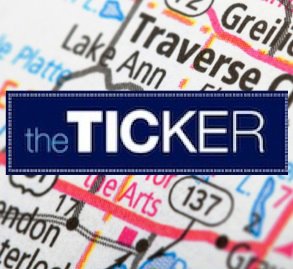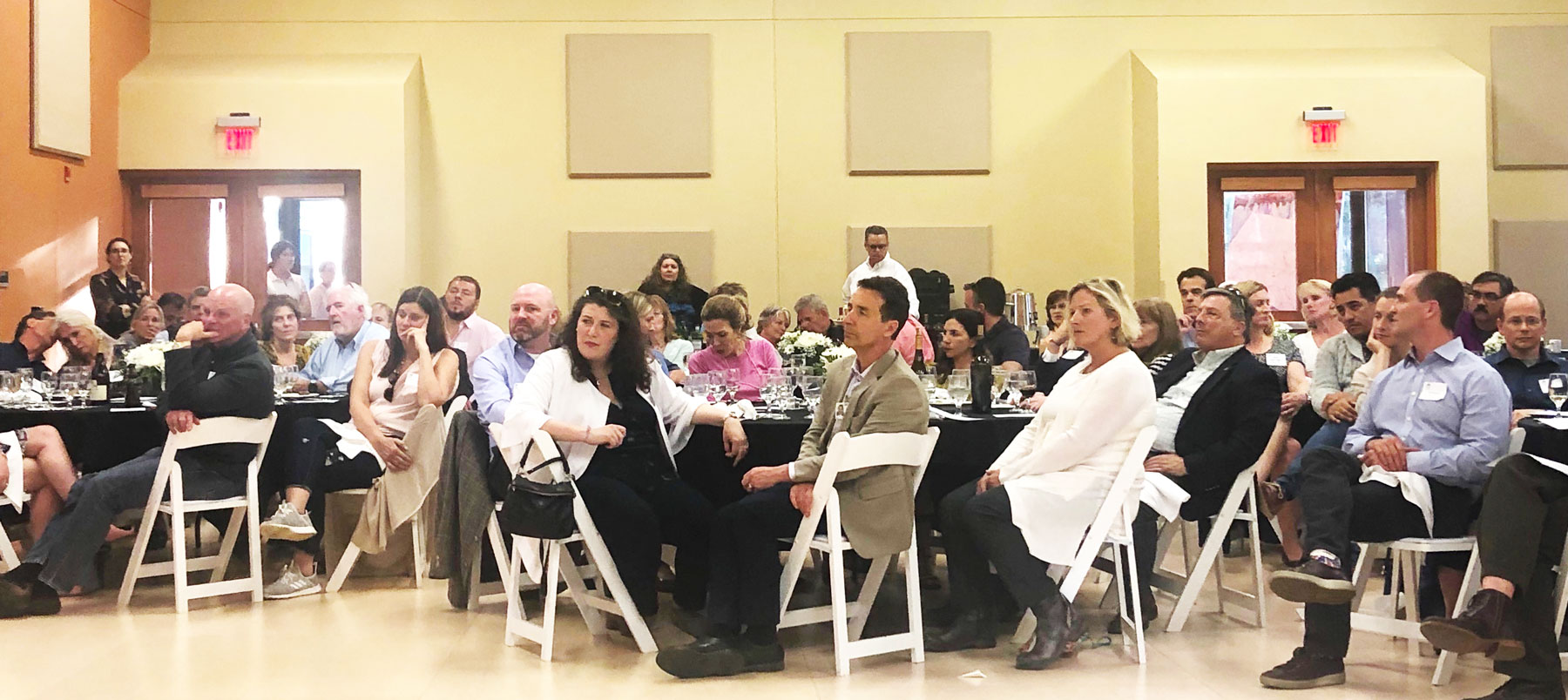
Traverse City Ticker By Craig Manning August 17, 2019
What do the formation of 20Fathoms, the passage of the 2018 Traverse City Area Public Schools (TCAPS) bond initiative, and the push for local high-speed fiber internet service have in common? All three initiatives have been backed by an informal group of local professionals calling themselves the Front Street Irregulars.
Four or five times a year, the Irregulars meet to network and discuss major local initiatives. According to Warren Call, president and CEO of TraverseCONNECT and a founding member of the Irregulars, the group’s primary goal is to help “start and grow enterprises that create high value in the Grand Traverse region,” as well as to support local businesses already operating here.
Call says the Front Street Irregulars started as a germ of an idea in late 2015, when he and Casey Cowell were having a conversation about the need for a Traverse City tech incubator. That particular concept ultimately evolved into 20Fathoms, but Cowell also saw the need for something else: a network of local influencers who could help connect people and support initiatives aimed at economic growth.
“Casey told me, ‘[A tech incubator] is a great idea, we should work on this, but the challenge is that we do not currently have a community of interest, a group of people that are going to fully understand why we need it,’” Call recalls. “He suggested that we start building out a community of like-minded business leaders.”
Cowell says he was inspired in part by what he perceived as a very tourism-driven local economy. “I had no plan to do anything specific in Traverse City, work-wise or investment-wise,” he says. “But then I saw that the summer festival activity was so unending that it seemed we were going down the Key West or Gatlinburg road. My first question was: ‘Where is the high-value business community on this? Are they here, and if so, why are they not engaged on the direction our community is going?’”
So in May 2016, Cowell and Call gathered 22 local businesspeople at Red Ginger. According to Call, though, that first meeting ended up serving as more of a time to connect people who should have met long ago.
“That was one of the valuable things right off the bat,” Call says. “There are a lot of successful businesses up here, but those business owners and leaders did not know each other. They weren’t in the same network, which is remarkable when you consider how small Traverse City is. We’re talking about really successful businesses and community leaders who had never met, had never known each other, had never toured each other’s operations. So [the group] was immensely valuable right from the very beginning, just from a relationship standpoint.”
“The meeting was supposed to last for 20-30 minutes. It ended up taking over two hours,” adds Cowell. “Mike Groleau of RJG introduced himself, and a few minutes later Jordan Lindberg of eFulfillment did. He looks at Mike and says, ‘didn’t we go to high school together?’ That was exactly the point: to bring people together.”
Eventually, the gatherings turned into deeper conversations about the future of the Grand Traverse community. First, the group took its name (it’s a play on the “Baker Street Irregulars,” a gang of fictional street urchins in Sherlock Holmes novels who act as intelligence agents for the legendary detective).
Then the meeting format solidified. Each Front Street Irregulars gathering is hosted by a different local business and allows members to tour local operations or learn more about how those companies impact the community. Meetings also include networking time, keynote addresses concerning major local initiatives, and quick updates from members.
Today, the Front Street Irregulars is more than 100 strong. It’s also served as a silent driver behind several major community initiatives. Call is hesitant to give the group too much credit for any one thing, but he says there have been a few substantial impacts over the past three years. Several Irregulars put up seed money for 20Fathoms, enabling the tech incubator to come to fruition. The group provided pro-bono consulting to TCAPS to help hone the messaging behind the 2018 bond initiative. Some of the most vocal supporters for TCNewTech and the Traverse City Light & Power fiber initiative have met and mobilized from within the Irregulars.
“It’s all about asking ‘What can we do to make our lives better, and also attract other businesses for further economic development?’” says Katie Horvath, a Front Street Irregulars member and CEO of the local data company Naveego. “Traditionally, businesses might sit back and not have this kind of lobbying arm, or not necessarily even know what to do or how to do it. By virtue of having this group band together, someone in the business community might figure out a pain point and get their voice known and heard about that issue.”
“This is no pomp, no circumstance, no hierarchy, no paid staff, no news,” Call says. “There is no formal structure to this at all. It is simply a club of a diverse set of people across industry, education, the public sector, and nonprofits, and they all just share a common desire to see this region have a broadly diversified, successful economy.
Nobody’s there to get their name in lights, or because they’ve contributed more money than someone else. It’s all volunteer and it’s all just for the good of the community.”
“Bureaucracy has no place at the table,” agrees Cowell.




